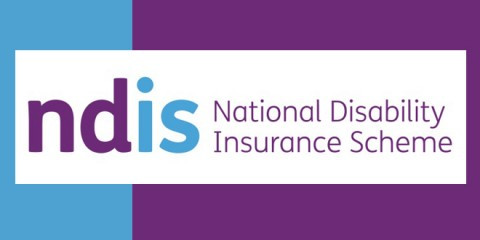
The NDIA has released some new information about how it will deliver Early Intervention for children. I surmise that the approach described in the NDIA's Market Position Statement for South Australia (June 2016) will apply pretty generally. This information is aimed at service providers, not at (prospective) NDIS participants, so it does not really explain the new approach for that audience.
On page 22, the document says:
Families will meet with a Partner to discuss their needs. The Partner will then draw on their specialised early childhood knowledge to determine appropriate supports for the child and family. This may include information provision, emotional support and an assessment of the need for specialised early intervention supports. Children who require more intensive early intervention support services will be referred to the NDIS to determine the reasonable and necessary supports that will assist to achieve an outcome(s). Families will then be able to choose an appropriate provider(s) to deliver funded supports.
The ECEI approach was trialled in the Nepean Blue Mountains and will be rolled out nationally. The implementation of the ECEI approach will lead to an increased focus on achieving outcomes for children with development delay or disability and represents a change to the way early intervention supports have been delivered in some trial sites, including South Australia. The ECEI approach will be implemented in South Australia progressively from July 2016 through interim arrangements. The NDIA will seek to source Partners to deliver the ECEI approach from 2017. In the absence of exceptional circumstances, Partners will generally not be able to provide NDIS funded supports to children for whom they have provided initial supports through the ECEI approach.
This approach should be applauded if it improves access to early intervention and diagnosis. However, diagnosis is unmentioned ... possibly, the intent is that "assessment" would lead to diagnosis, but this should be stated explicitly.
The language used above refers only to "supports"; it omits reference to any clinical interventions and/or services that may be appropriate, reasonable and/or necessary.
From the perspective of a prospective autistic NDIS participant, several key questions remain.
- what were the outcomes in the Nepean Blue Mountains trial?
- previously, the HCWA scheme provided Autism Advisors to provide families with impartial information about early intervention? Will the Partners be expected or required to provide families with impartial advice about early intervention for autism/ASD? Or will this function be somewhere else in the NDIS system? If so, where? How will the NDIA ensure advice provided is impartial? How was the issue of "impartial advice about early intervention for ASD" addressed and assessed in the Nepean Blue Mountains trial ... and what were the results?
- How will the NDIA/NDIS "determine the reasonable and necessary supports that will assist to achieve an outcome(s)"? What advice/training does the NDIS give its staff engaged in (performing) this process? And what is the process?
- will children who may have autism spectrum disorder be referred for formal diagnosis? How will this work? Is it a goal to diagnose autistic children earlier than in the past? [Note: pre-NDIS, nearly 3/4 of children who got/get Commonwealth Government funded early intervention had/have an autism/ASD diagnosis].
- who are the Partners?
Another description of the new approach to the NDIS's Early Intervention, aimed at families and NDIS participants, is available at http://raisingchildren.net.au/articles/…. Some people will find it clearer. It says:
The NDIS supports early intervention at any stage of life. But children older than seven years need to have a permanent and significant disability or developmental delay to get support.
Some families will find the description of the "pathways" to be useful/valuable information.
However, families should be wary of the advice on the website about "choosing NDIS service providers". The NDIS and many of its associates oppose ASD-specific approaches and advice; they invest their faith in Inclusion ideology so that the NDIS approach avoids essential skill development stages and skips essential initial steps that autistic children need. The NDIS puts its faith in "inclusion" rather than evidence-based approaches for autistic children (where appropriate and tailored "inclusion" is progressively part of a child's individual program). Families should try to understand the range of evidence-based early interventions. As well as information from the NDIS and its preferred partners, families should seek advice from the research literature (if they can) or from specialist ASD service providers so that they get a range of options and can make informed choices for their autistic children.